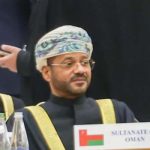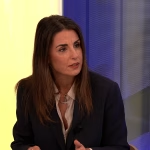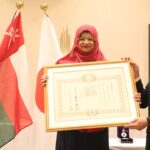EU diplomats have reached an agreement to use income from frozen Russian state assets to assist Ukraine, potentially providing around €3 billion for arms purchases and reconstruction before the summer. Since the invasion of 2022, approximately €210 billion in assets of the Moscow central bank have been frozen within the EU. The plan to use the interest from these funds for Ukraine’s reconstruction costs and military expenditure has the support of the G7, following the recent approval of €89 billion by the US Congress. However, there are calls for Brussels to further confiscate Moscow’s assets to hold the aggressor accountable for the costs of war.
While the deal allows Euroclear to retain 0.3% as an administration fee, concerns were raised about the initial proposal of a 13% fee and Belgium’s taxation on the profits gained by the Brussels-based securities depository. Belgian Prime Minister Alexander De Croo has committed to sending approximately €1.5 billion directly to Ukraine, but this is mainly due to existing corporate tax laws applying to the unexpected windfall Euroclear receives from frozen assets. The majority of the funds will be channeled through the European Peace Facility to support Ukraine in acquiring weapons. Commission President Ursula von der Leyen has projected that Ukraine could start receiving funds as early as July, although the calculation will be retroactively applied from February when Euroclear first separated the assets.
EU member states and the European Central Bank have expressed reservations about outright seizing assets, fearing potential negative implications on the euro’s reputation. Additionally, discussions were delayed due to concerns over the percentage of assets retained by Euroclear as a fee and Belgium’s tax on profits. The agreed-upon reforms that Ukraine must implement to access funds from a separate €50 billion EU grants and loans facility have also been formalized. This allocation of funds aims to assist Ukraine in addressing the challenges posed by the ongoing conflict and rebuilding its infrastructure.
The plan to allocate income from frozen Russian assets to Ukraine is a significant step in providing the country with much-needed support in the face of ongoing conflict. The decision to use interest payments for reconstruction costs and military expenditures reflects a concerted effort by the EU to assist Ukraine in addressing the challenges posed by the war. By channeling funds through the European Peace Facility, Ukraine will have access to resources for the purchase of weapons to bolster its defenses. The commitment of funds from various sources demonstrates a strong international effort to support Ukraine in its efforts to defend its sovereignty and rebuild its infrastructure.
Despite the agreement reached by EU diplomats, there are calls for Brussels to take more decisive action by fully confiscating Moscow’s assets to hold Russia accountable for the costs of the war. Ukrainian officials have urged for a more comprehensive approach, emphasizing the need for the aggressor to bear the financial burden of the conflict. However, concerns regarding the potential impact on the euro’s reputation and the administration fee to be retained by Euroclear have led to hesitations among EU member states. The need for Ukraine to implement specified reforms to access EU grants and loans highlights the importance of ensuring transparency and accountability in the allocation of funds for reconstruction efforts.
In light of the escalating conflict in Ukraine, the agreement to allocate income from frozen Russian assets signifies a significant commitment by the EU to support the war-torn country. By utilizing interest payments for reconstruction and military expenses, the EU aims to provide Ukraine with the necessary resources to address the challenges posed by the conflict. The decision to channel funds through the European Peace Facility underscores the international community’s solidarity in assisting Ukraine in its defense efforts. As Ukraine prepares to receive financial support, the need for continued reforms and accountability underscores the importance of ensuring that funds are effectively utilized for the country’s reconstruction and recovery efforts.











